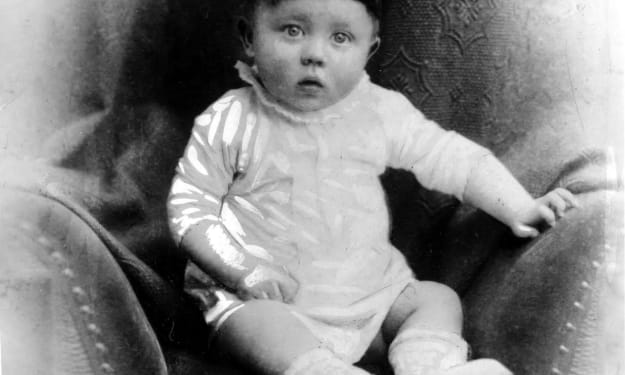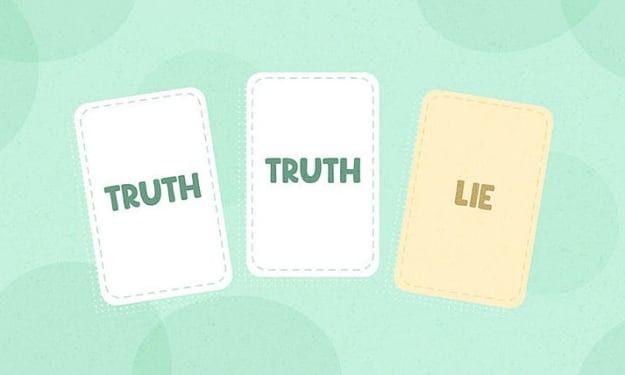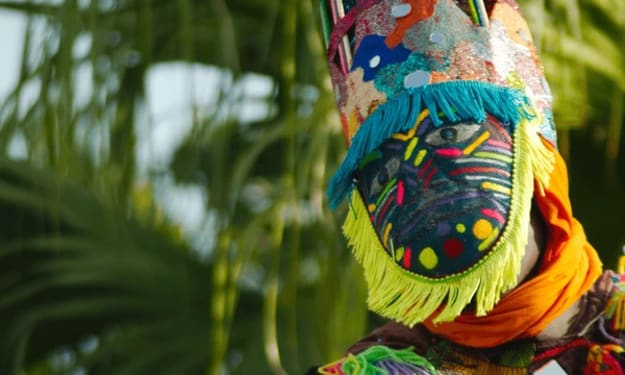Should You Be Devoted To Something — Or Is It Enough Just To Be Alive?
Are we what we believe? Scary, eh?

All religions have symbols, signs and external objects for believers to support their religious practices.
We need those external reminders to focus on the doctrines and their application. Over time many of these religious symbols have become more secular and almost lost their spiritual origins.
I can see how people carry crosses as jewels or keep them as home decorations. Some bring small statues of Buddha from their South-East Asia trips and put them next to the garden gnomes — a tasteless intercultural mix.
In most cases, these objects have nothing to do with our devotion or spiritual aspirations anymore.
But they still carry a deep, sometimes thousands of years long, meaning if we look at them. And we should look closely at these objects to evaluate our spiritual awareness.
Stairways to mundane.
I was raised like most Finnish in a secular society loosely following the Lutheran church that most Finns belong to.
We went to weddings, christenings and funerals at the church, but that’s it. I don’t have many recollections of those visits. For me, they were just something that adults in their boringness did — nothing for my curious mind.
But that all changed in a very disruptive way.
The shocking awakening my son gave me.
The cry of my three-year-old son echoed in the vast church. He was panic-stricken right from the moment he saw the enormous lifelike Jesus hanging lifelessly on the cross, blood on his bony chest glittering in the candlelight.
It was our friend’s wedding, but I quickly decided to take my son away from there. As we ran, wedding guests stared at us, annoyed or with pity. My son’s cry was so loud, as if from torture.
Finally, we got out. The summer sunshine embraced us, and my son stopped crying. Tears still on his cheeks, he asked: “Daddy, why do they have a dead man hanging there?”
It was the first time I took my son to church, and definitely the last one.
At that moment, I realised how profound a message these religious objects carry.
What is your object of devotion?
Have you thought about what in your life has the highest priority and value? Is it something outside of yourself like money, status or relationship? What symbolises it?
What makes you happy and feel fulfilled? Do you carry the symbol of your desires with you like a talisman?
Do you have a life philosophy or religious faith that gives your life meaning beyond your perceived power or position? Do you put a sticker about it on your car’s rear window?
Some of us find an object of devotion in good causes like fighting climate change, social injustice and other similar objectives. Some of us are driven by meditation and mindfulness. And then some don’t give a f*k.
If our object of devotion is outside of us, we are at the mercy of somebody else. It might be inflation or God — but it is outside our hands.
The late SGI-UK General Director Richard Causton said it well: “If you don’t know what to do with your life, somebody else does”.
The change is constant, but the direction of it varies.
In Buddhist thinking, everything has a life state that can change instantly. We can be in the seventh heaven and then, in seconds, in the bottomless pit of the hottest hell.
If your object of devotion or worship is, for example, your lover, the moment you find that person cheating on you, the stairways to heaven turn around, and you descend to the hell of jealousy and wicked thoughts.
The same is with money and fame. But more importantly, this is also with religious objects and how we align our lives with them. They strangely guide us, representing our fears and hopes. They truly are archetypical.
In Nichiren Buddhism the object of devotion is Gohonzon.
I have been an SGI-Nichiren Buddhist since 1990. It is a very active form of modern Buddhist practice established by a Buddhist monk and scholar, Nichiren Daishonin, in 13th-century Japan.
One essential part of this practice is to have a paper scroll with beautiful calligraphy depicting fundamental Buddhist concepts. We look at that calligraphy when we chant to it.
The scroll is called Gohonzon, the object of devotion in English. In Buddhist practice, the Gohonzon is the external manifestation of the inner potential of enlightenment each of us has in our lives.
We use our Gohonzon as a mirror. It reflects our highest potential or our true self. Even if it is external, it just demonstrates the power, possibilities and options we have within us. It evokes those internal and often latent positive aspects of our lives so that we can manifest them in our realities.
It also helps us to overcome our shortcomings and challenges by providing a method for transformation, focus and wisdom to take the right action.
Ultimately the positive force that the Gohonzon represents leads us towards happiness and fulfilment.
It is an active practice, and when we chant, i.e. pray to the Gohonzon, those prayers are not asking anything from external divine power but are expressions of our determination to reveal our own power from within and transform our lives for the better.
“Never seek this Gohonzon outside yourself. The Gohonzon exists only within the mortal flesh of us ordinary people who embrace the Lotus Sutra and chant Nam-myoho-renge-kyo.” (The Real Aspect of the Gohonzon — WND, Vol. 1, page 834).
Understanding that religion encompasses my whole life took me a long time.
After my teenage years, I firmly took an atheistic view of life. I thought religion was only for weak people who didn’t want to be responsible for their lives.
I didn’t realise that religion and church are not even closely related.
The church is a societal structure to support (and suppress) its members. Religion is an inner clarity about our life and its meaning. Call it spirituality, if you like.
We need to have faith in many things. When we believe in something, we become part of that reality. Without faith, the world simply cannot work.
If you fly on a plane, you must have faith in aerodynamics, pilots and the plane’s engineering. You trust that it can take you to your destination safely.
I am still an atheist but a profoundly religious one.
When I ran from the church with my son, his fear made it very clear: I had to help him grow up as a person who is not intimidated by any external objects or hierarchies— however scary or alluring they might be.
That incident crystalised me the difference between hierarchical power structures and the seeking spirit of true religion. Church forces you to believe — a religion requires you to doubt, ask questions, find answers, learn and transform.
Instead of those power structures, we need religion and an object of devotion that liberates us and gives us freedom of thought, direction for our lives and hope for a better future.
Blind faith leads you to your fall. Choose your objects of devotion carefully and consciously.
For me, it is Buddhism. It might be something else for you, but as long as it comes from within your life, you are safe — and not in someone else’s hands.
About the Creator
Jussi Luukkonen
I'm a writer and a speakership coach passionate about curious exploration of life.
You are welcome to subscribe to my newsletter, FreshWrite: https://freshwrite.beehiiv.com/subscribe
Enjoyed the story? Support the Creator.
Subscribe for free to receive all their stories in your feed. You could also pledge your support or give them a one-off tip, letting them know you appreciate their work.






Comments
There are no comments for this story
Be the first to respond and start the conversation.